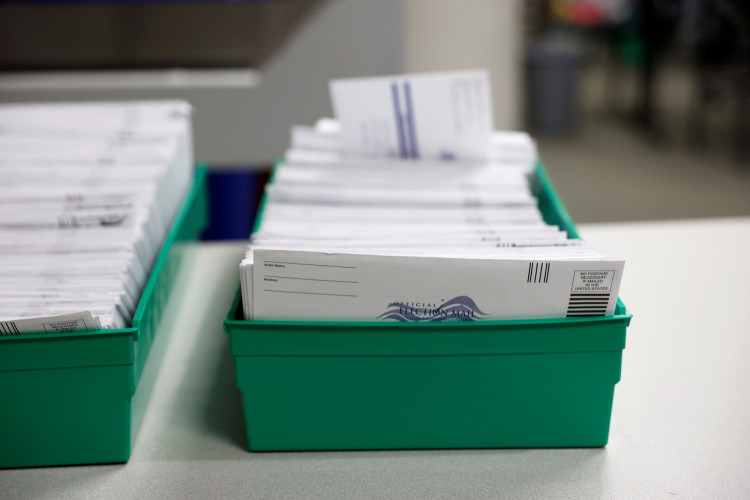Republican National Committee (RNC) lawsuits seeking to challenge the validity of certain overseas ballots in Michigan and North Carolina were struck down by judges in both states this week. The rulings represent a significant setback for Republican efforts to contest the eligibility of overseas voters, who have traditionally been seen as critical to military members but have shifted to become a largely civilian and increasingly Democratic voting bloc in recent years.
In Michigan, Judge Sima Patel dismissed the lawsuit filed by the RNC, labeling it an "11th-hour attempt" to disenfranchise overseas voters. The GOP challenge targeted a state policy allowing citizens abroad to vote if their spouse or parent resided in the state prior to leaving the country, even if the voters themselves had never lived in Michigan. Patel criticized the timing of the lawsuit, noting that it was filed just weeks before Election Day, and argued it would be "extremely difficult or impossible" to reject the potentially thousands of absentee ballots already cast.
"The court finds it hard to imagine a more prejudicial situation arising from plaintiffs' delay," Patel wrote in her ruling. The judge sided with the Michigan Secretary of State Jocelyn Benson, a Democrat, who praised the ruling as "a win for voters and democracy today in Michigan!" Benson's office, which had been sued by the RNC, had argued that the lawsuit was an attempt to disenfranchise voters abroad, many of whom had already cast ballots under the long-standing policy.
The RNC faced a similar rejection in North Carolina, where Wake County Superior Court Judge John W. Smith ruled against the Republican challenge to that state's overseas ballot rules. Like Michigan, North Carolina's policy allows the children of voters who once lived in the state to cast ballots even if they themselves have never been residents. Smith noted that the RNC had failed to present evidence of fraud, dismissing their claims as speculative.
"This court has weighed the hypothetical possibility of harm to plaintiffs against the rights of the defendants and finds... there is not even a scintilla of substantive evidence" to support the RNC's claims, Smith wrote in his decision. The North Carolina case mirrored the Michigan case in its timing and lack of substantive proof. The judge further pointed out that the policy the RNC was contesting had been enacted with bipartisan support years earlier and had gone unchallenged until now.
The cases in both states are part of a broader Republican effort to challenge the overseas voting bloc ahead of the 2024 elections. Historically, military voters represented the bulk of overseas ballots and were considered a strong conservative base. However, the makeup of the overseas voting population has shifted since 2016, with civilian expatriates now outnumbering military voters, according to multiple sources. Democrats have responded by ramping up their efforts to engage and mobilize this growing group of voters, with some reports indicating significant investments by Democratic organizations in turning out overseas ballots in battleground states.
The RNC's lawsuits in Michigan and North Carolina reflected concerns over the potential impact of this overseas voting bloc on key swing states, particularly as Democrats have made inroads with expat communities. Michigan Republicans specifically cited reports of the Democratic turnout efforts in their filings, pointing to the increasing importance of overseas votes in tight races. However, both Patel and Smith rejected these arguments, with Patel emphasizing that the policy had been in place for years and could have been challenged earlier.
Despite the setbacks, the RNC remains adamant that its lawsuits are crucial to safeguarding the integrity of the election process. Former President Donald Trump and his allies have repeatedly pointed to election challenges as a key strategy for ensuring fair outcomes in 2024. The overseas voting bloc, once viewed as sacrosanct due to its ties to military service, has now become a point of contention as its demographic makeup changes.
Michigan's Secretary of State reported last week that around 16,000 overseas ballot requests had been received for the upcoming election, a fraction of the state's 8.4 million registered voters. In 2020, more than 5.5 million Michiganders cast ballots in the general election, underscoring the relatively small impact that overseas votes are likely to have on overall results. Still, the RNC's legal battles reflect growing concern within the GOP about potential shifts in key voting blocs ahead of a highly contentious election season.
In North Carolina, similar dynamics are at play, with Republicans pushing to restrict the influence of voters abroad. But the courts' decisions in both states suggest that efforts to block overseas ballots face significant hurdles, particularly without clear evidence of fraud or procedural violations.






